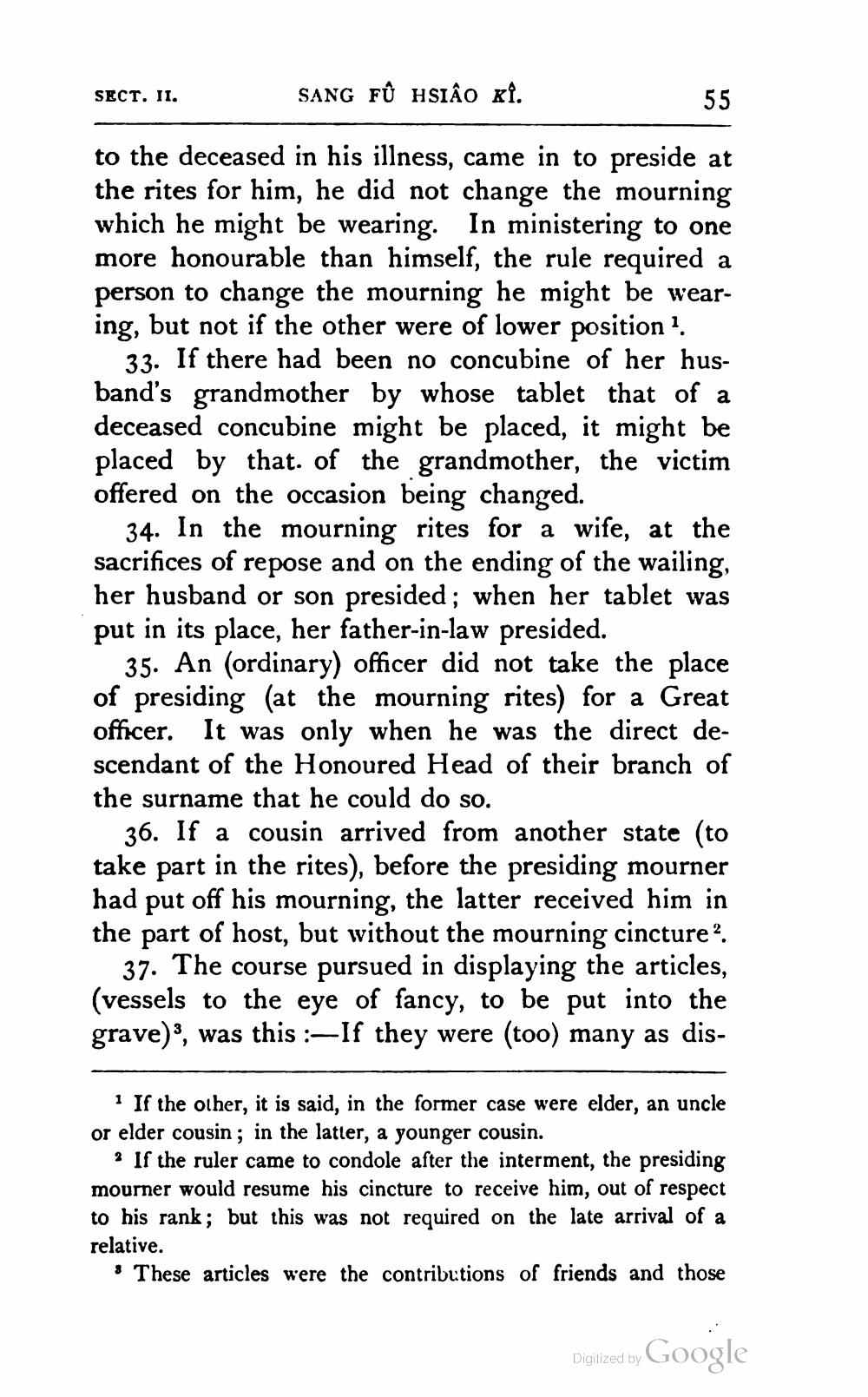________________
SECT. II.
SANG FÛ HSIÂO ki.
to the deceased in his illness, came in to preside at the rites for him, he did not change the mourning which he might be wearing. In ministering to one more honourable than himself, the rule required a person to change the mourning he might be wearing, but not if the other were of lower position !
33. If there had been no concubine of her husband's grandmother by whose tablet that of a deceased concubine might be placed, it might be placed by that. of the grandmother, the victim offered on the occasion being changed
34. In the mourning rites for a wife, at the sacrifices of repose and on the ending of the wailing, her husband or son presided; when her tablet was put in its place, her father-in-law presided.
35. An (ordinary) officer did not take the place of presiding (at the mourning rites) for a Great officer. It was only when he was the direct descendant of the Honoured Head of their branch of the surname that he could do so.
36. If a cousin arrived from another state to take part in the rites), before the presiding mourner had put off his mourning, the latter received him in the part of host, but without the mourning cincture?
37. The course pursued in displaying the articles, (vessels to the eye of fancy, to be put into the grave), was this :-If they were (too) many as dis
* If the other, it is said, in the former case were elder, an uncle or elder cousin; in the latter, a younger cousin.
? If the ruler came to condole after the interment, the presiding mourner would resume his cincture to receive him, out of respect to his rank; but this was not required on the late arrival of a relative.
* These articles were the contributions of friends and those
Digitized by Google




